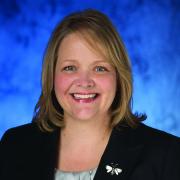Join us on a trip ten years into the future, to May 1, 2026…
Today, we celebrate the 10th anniversary of the year that the tide began to turn for early childhood education — and early childhood educators. Over the last decade, in nearly 75% of states across the country, we have celebrated victories leading to increased levels of education and compensation for professionals and increased access to high-quality early childhood education for children and families.
With national support at an all-time high, and major investments at federal, state and local levels resulting in narrowed opportunity gaps, increased school readiness and an increased focus on children’s social-emotional development, let’s look back at how we got here.
We knew, ten years ago, that we stood on the cusp of a critical moment in early childhood education. Transforming the Workforce, as it is now universally known, had been released just a year earlier, building on the science of early learning to lay the groundwork for the organizational, grassroots, legislative and electoral changes that followed. Although the brain development and economic research had long been part of the bedrock upon which we had built the field of early learning, the rapid scientific breakthroughs of the last decade have only continued to increase the momentum and clear need for investment in the earliest years. And while the American public at the time certainly valued early childhood education and educators, we have made enormous strides in translating that value into votes.
Where NAEYC’s annual poll once showed that 82% of American voters supported increasing funding that was dedicated to increasing wages, our most recent research found that over 95% of voters, across all demographic, geographic and party lines, now say they will only cast their vote for a candidate with a demonstrated record and commitment to investing in the quality and compensation of the early childhood profession.
This support was built painstakingly, as our once fractured field came together to provide a clear definition of our early childhood profession, with universally agreed-upon and accepted knowledge and competencies that cross settings and states. Without this process and resulting products, we would have collectively been challenged to work with state governments, legislatures and institutions of higher education in ways that allowed us to attract and retain the diverse, high-quality educators who increasingly make up our profession today.
As I travel this country, visiting the homes and classrooms where our children are learning and growing, where their home languages and cultures are being recognized and honored, I thank the many leaders who brought us to the point where the promise of early learning is being realized. I thank the educators who fought for their professional recognition and the American families and voters who stood alongside them. I thank the supporters of all generations who made Early Ed for President into the force it is today. And I thank the courageous policymakers who chose to listen to the science and make the investments that will continue to shape our country’s future for decades to come. We have work left to do to advance the early childhood profession, but we can take pride in the knowledge that our country has finally begun to recognize and reward our worth.
*This is a vision for our future - but not an imaginary one, not unattainable, not outside of our collective reach. We need to ask ourselves: what will it take now for us to be able write this piece, for real, in ten years? What will each of our parts be, and how will we be successful, together?
This blog was originally published in Schoolhouse Voices and is posted with their permission.
Rhian Evans Allvin is the chief executive officer of NAEYC. She is responsible for guiding the strategic direction of the organization as well as overseeing daily operations. Before joining NAEYC, Evans Allvin was a guiding force in Arizona’s early childhood movement for more than 15 years, including serving as CEO of Arizona's First Things First.

